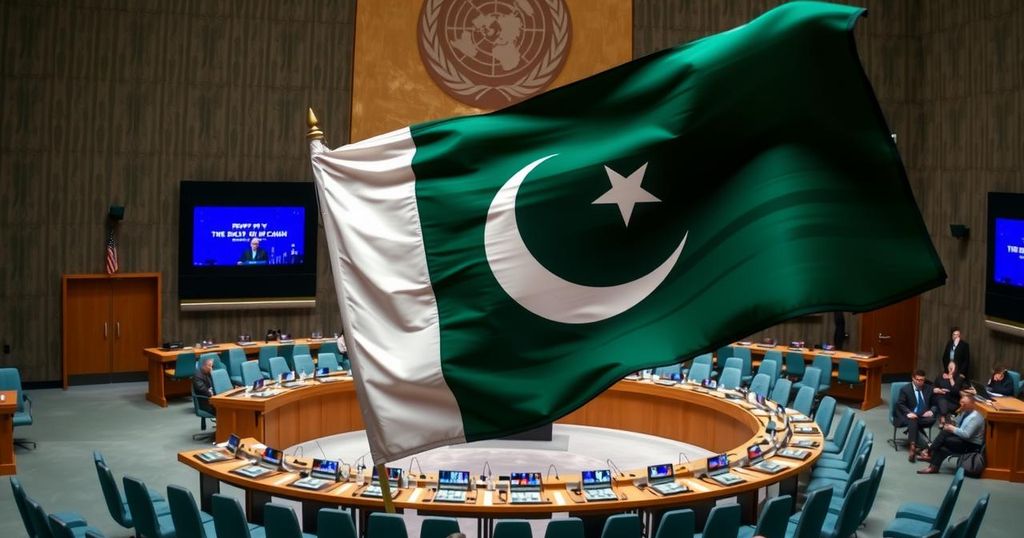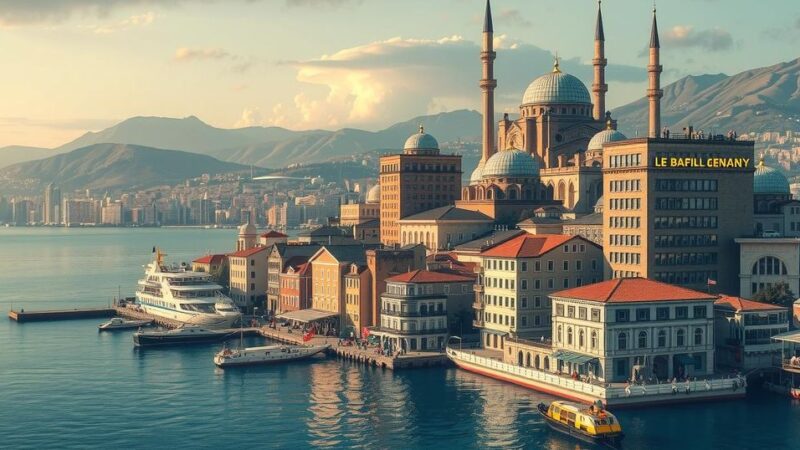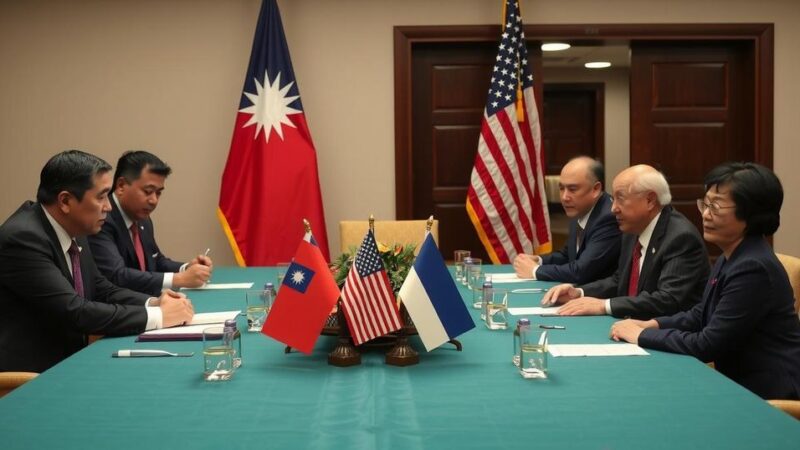Pakistan has commenced its eighth term as a non-permanent member of the UN Security Council, marked by the installation of its flag at the UN headquarters. Ambassador Asim Iftikhar Ahmad emphasized Pakistan’s role in advocating international peace, security, and self-determination rights. As part of the UNSC, Pakistan will also participate in significant committees targeting terrorism. The country is committed to addressing global challenges through cooperative multilateralism.
On Thursday, the Pakistani national flag was raised in front of the United Nations Security Council (UNSC) chamber, marking the commencement of Pakistan’s eighth term as a non-permanent member from 2025 to 2026. Following its election in June to replace Japan, Pakistan now occupies one of the two Asia-Pacific seats on the 15-member council. Pakistan’s term implies significant responsibilities, including a presidency in July, offering a unique platform to influence discussions on crucial international issues.
During the installation ceremony, the flags of the newly elected non-permanent members — Pakistan, Denmark, Greece, Panama, and Somalia — were unveiled at the UNSC stakeout in New York. These nations take the places of Japan, Ecuador, Malta, Mozambique, and Switzerland, whose terms concluded at the end of 2024. Pakistan’s Alternate Permanent Representative to the UN, Ambassador Asim Iftikhar Ahmad, presided over the flag installation, emphasizing the nation’s commitment to global security initiatives.
As a member of the UNSC, Pakistan will also join the Islamic State (ISIS) and Al Qaeda Sanctions Committee, which is responsible for monitoring and imposing sanctions on designated terrorist entities. The UNSC consists of fifteen members, five of whom are permanent — the United Kingdom, China, France, Russia, and the United States — while the ten non-permanent seats are rotated based on geographic representation every year.
Ambassador Ahmad articulated that Pakistan will steadfastly adhere to the principles of the UN Charter, advocating for international peace, security, and equitable relations among nations based on self-determination. He asserted, “Pakistan will always remain a strong voice for peoples under foreign occupation and oppression and the realization of their right to self-determination.”
Moreover, he emphasized the necessity of cooperative multilateralism, with the UN as its focal point, to address ongoing conflicts and prevent future disputes. Ahmad detailed, “We need to earnestly address the root causes of long-outstanding and new conflicts, prioritize dialogue and diplomacy, and support confidence building at regional and global levels.” Pakistan is committed to foster effective solutions pertaining to the UNSC’s agenda and declare its dedication to peacebuilding initiatives for achieving long-lasting resolutions.
Underlining the enduring commitment towards humanitarian concerns, Ahmad stated, “Never forgetting our solemn duty towards the millions of men, women and children suffering in conflicts, Pakistan is assuming this responsibility, fully resolved to our collective endeavor for a more peaceful and secure world.” His remarks encapsulate Pakistan’s broader vision for contributing constructively to the international landscape during its time at the UNSC.
This article discusses Pakistan’s recent installation as a non-permanent member of the United Nations Security Council (UNSC) for the eighth time. Pakistan’s election to the UNSC and the implications of its role in addressing international security issues form the crux of the discussion. The UNSC’s structure, including its composition of permanent and non-permanent members, is highlighted, as well as Pakistan’s responsibilities and commitments during its term. The article emphasizes the significance of multilateral cooperation through the UN, especially regarding conflict resolution and humanitarian issues.
In summary, Pakistan’s ascension to a non-permanent seat on the United Nations Security Council underscores its role in fostering international dialogue and addressing global challenges. The flag installation marks not only a ceremonial occasion but also a reaffirmation of Pakistan’s commitment to the principles of the UN Charter. With Ambassador Ahmad leading the charge, Pakistan aims to promote peace, security, and the rights of oppressed peoples during its tenure. The diplomatic responsibility ahead is significant, and the country’s active participation is expected to shape key discussions on vital global issues.
Original Source: www.dawn.com







